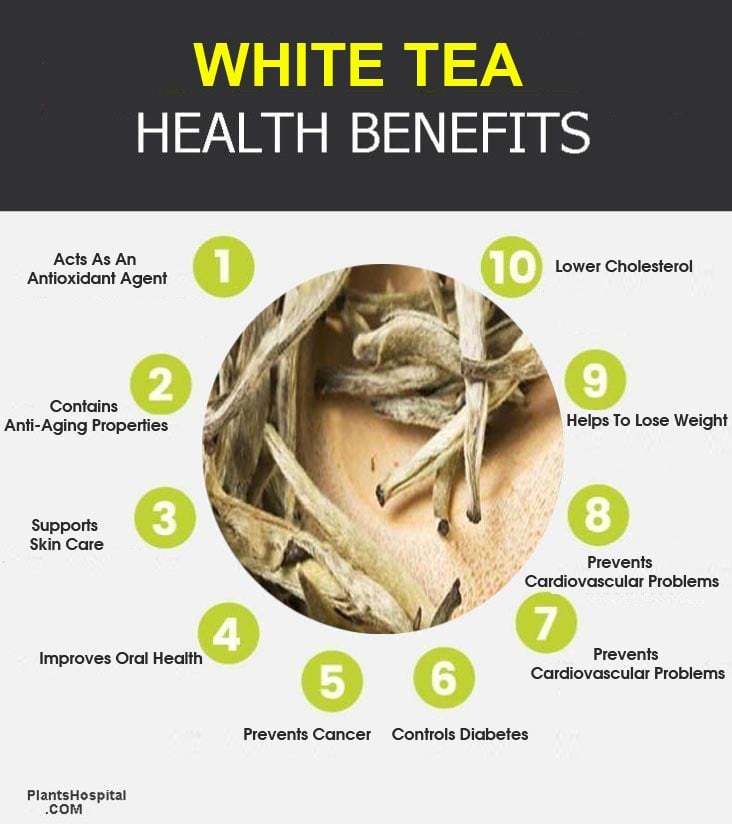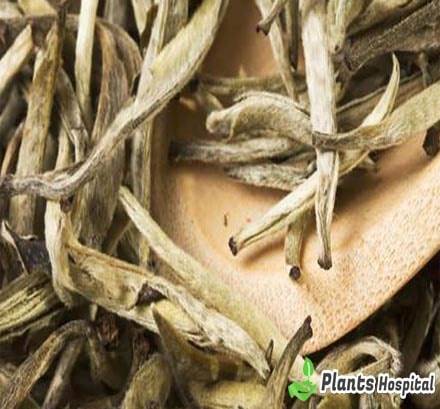White tea although often consumed, many health benefits occur both in the present and after studies in the past. Because of these benefits, it is considered a better alternative than coffee, which contains a high percentage of caffeine.
Table of Contents
What is White Tea?
Green and black teas are equally useful, but the least processed tea is white tea, which helps maintain high levels of phytochemicals.
Because of the least processed tea, production is much shorter than the time required to produce black tea or green tea. White tea thought to have emerged in China. With the changing dynasties of China in the past, white tea production also changed, and over time, various types of tea began to emerge.
White tea reduces the risk of cancer, prevents cardiovascular disorders and protects oral health. It has antioxidant and anti-aging properties that help protect the skin. Protects your skin from the harmful effects of UV rays. Its antibacterial properties keep bacteria from causing various infections.
It allows diabetic people to recover from symptoms such as decreased plasma glucose levels, increased insulin secretion and excessive thirst (polydipsia).
It also helps to lose weight. There are different types of tea available on the market. Green tea, black tea, hibiscus tea, and chamomile tea are widely consumed. Tea has been known to have positive effects on people for a very long time.

What Are The Health Benefits Of White Tea?
With so much anti-aging and antioxidant properties, this tea is beneficial for all of us. Health benefits include:
1. Acts As An Antioxidant Agent
Free radicals cause damage to organs in the body. It contains polyphenols, which help neutralize these free radicals and make them less destructive. A study result suggests that this tea may increase the antioxidant effects of plasma as well as organs.
Another study investigated the neuroprotective effect of white tea extract on hydrogen peroxide-induced toxicity. The results of this study showed that the extract helps protect the neurological cell with its antioxidant properties.
2. Contains Anti-Aging Properties
Free radicals greatly contribute to an accelerated aging process, along with other problems associated with age progression. With antioxidant properties, white tea can reduce the risk of premature aging.
3. Supports Skin Care
It also helps to maintain skin health and shine. The antioxidant content of this tea is recommended to be used as a help to quickly repair and restore damaged skin. It is also useful in protecting the skin against the effects of ultraviolet light.
4. Improves Oral Health
The health benefits of white tea include improving oral health. The presence of polyphenols, flavonoids, and tannins helps prevent the growth of a variety of bacteria, which can cause plaque formation. The fluoride content found in this tea can also be effective in reducing the risk of tooth decay.
It is estimated that about 34% fluoride is found in each cup, according to a study published in the Journal Of Dental Research. This could mean could work to prevent the formation of caries and strengthen oral health.
5. Prevents Cancer
Like green tea, white tea can be useful in preventing cancers such as lung cancer. Research has shown that this tea is a potential anticancer and chemopreventive agent. Its extract causes apoptosis (death of bad cells) and is thought to help prevent new cell growth in lung cancer. It also has antimutagenic properties.

6. White Tea Controls Diabetes
A research study suggests that regular consumption may reduce symptoms such as excessive thirst (polydipsia), decrease in plasma glucose levels and increase in insulin secretion, and may provide relief in diabetic people.
7. Prevents Cardiovascular Problems
Flavonoids found in a variety of food products, such as white tea, reduce the risk of cardiovascular disease. These flavonoids help reduce blood pressure. It also helps in the treatment of dyslipidemia i.e. endothelial function and inhibits low-density lipoprotein oxidation. Consumed as a tea rich in flavonoids may reduce the risk of various heart conditions.
Editor’s Pick:
8. White Tea Helps To Lose Weight
Busy schedules and choosing the wrong food can easily cause you to gain weight. If you don’t have time for physical exercise, losing weight may not be easy. Living with a diet plan can help you get out of such situations.
It is recommended to consume white tea in some of these diets. Have you ever wondered why? Studies suggest that regular consumption may prevent adipogenesis, the process of forming fat cells and control the life cycle of these fat cells, called adipocytes.
Research has shown that white and green tea contain equal amounts of catechin. Catechins are plant compounds with antioxidant properties that can help initiate fat burning and accelerate your metabolism. So it’s burning. Other natural fat burners include grapefruit essential oil, cherry, coconut oil, and bone juice.
9. Lower Cholesterol
Your body needs cholesterol, but if it is too high, it can cause plaque build-up in the arteries and narrow and tighten the arteries. White tea helps your heart health by helping to lower cholesterol. In an animal study, bad cholesterol levels were reduced when white tea extract was given to diabetic rats.
10. Caffeine Content
There are only 28 milligrams of caffeine in a large cup. It is relatively low compared to other caffeinated beverages such as coffee or green tea. For example, a cup of coffee has 95 milligrams of caffeine per cup. This is more than 3 times the amount of caffeine in white tea. In other words, it can provide energetic support, but it is not addictive and does not result in withdrawal symptoms.
Editor’s Pick:
Warnings
Although white tea has some very impressive health benefits, it is unlikely that it will make a difference to your health unless used in combination with a balanced diet and regular physical activity.
Additionally, since most of the current research is limited to animal and test-tube studies, it is difficult to say how feasible the results of these studies. More studies should be done on people to determine how white tea can affect your health.
The side effects of white tea come mainly from caffeine content and can include insomnia, dizziness or gastrointestinal problems. Pregnant women should also not consume more than 200 milligrams a day to avoid the negative effects of caffeine intake. However, for most tea, negative symptoms can be kept at a safe level with minimal consumption.








